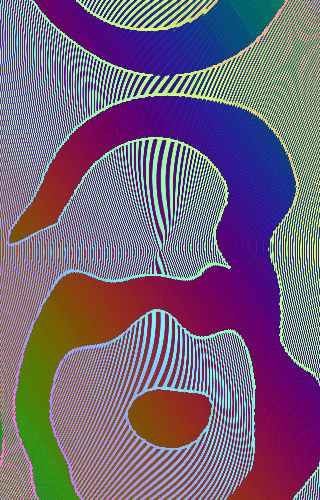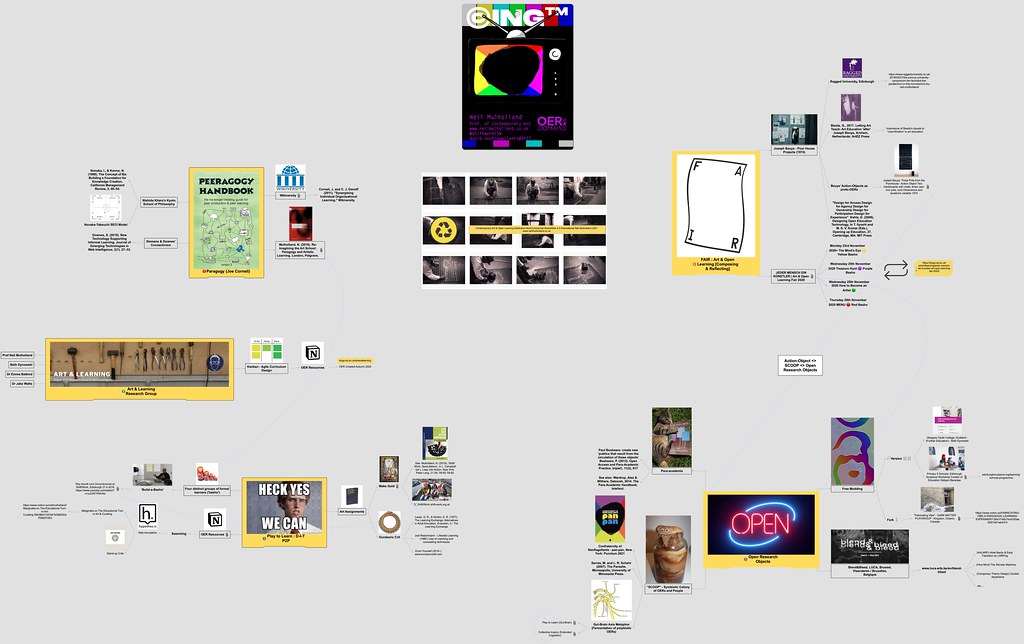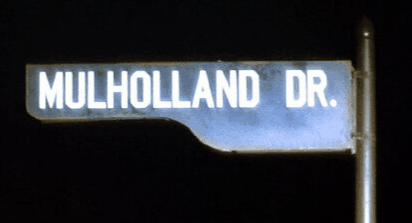20.4.21 11:20 BST
A Reflective Practice paper at #OERxDomains21 organised by the Association for Learning Technology @A_L_T in partnership with Reclaim Hosting’s Domains Conference, this special edition of the much loved event is the 12th annual conference for Open Education research, practice and policy.
This paper reflects upon the @eca_edinburgh paragogic OER Contemporary Art & Open Learning that started Sept 2020 https://blogs.ed.ac.uk/artandlearning

‘SCOOP’
Intentional art education today takes diverse organisational forms: traversing small artist-led initiatives, international biennials, art academies and artistic practices. Artistic learning is porous and ubiquitous: it is lifewide: discovered through a wide variety of formal and informal arts contexts. Art education is a distinctly ‘live’, embodied experience. Until the pandemic pivot, there had been few virtual communities of artistic learners. How might artists catalyse the post-Covid recovery of the artworld by engaging with emerging edutech practices such as the open paradigm (Winn 2015), paragogy (Corneli 2011, 2016) and para-academia (Wardrop 2014)?
To partly address these issues, I will reflect on a new course I taught in collaboration with my colleagues Jake Watts, Emma Balkind and Beth Dynowski at Edinburgh College of Art.
Contemporary Art & Open Learning was designed to enable colleagues and art students to open access to artistic learning by peer-producing, codifying and sharing their own learning practices. The OER practised a range of peer-based theories of learning and knowledge production to extend open access into the communal Third Places (Oldenburg 1999) frequently produced by artists. In particular, it promoted ‘paragogics’, learning principles that offer a flexible framework for peer learning.
Embracing the Open Paradigm’s vision of education as a human right might better equip formal art education organisations – such as art schools, workshops and galleries – to fulfil UNESCO’s right to participate in cultural life. However, we must also remember that cultural life is fermented formally and informally. Working together, OERs and people can catalyse the recovery by forming symbiotic colonies of artistic learning and, thus, new artworlds.

Corneli, J. and C. J. Danoff (2011). “Synergising Individual Organisational Learning.” Wikiversity.
Corneli, J., et al. (2016). The Peeragogy Handbook. http://peeragogy.org, PubDomEd and Pierce Press.
Knox, J. (2013). “Five Critiques of the Open Educational Resources Movement.” Knox , J 2013 , ‘ Five Critiques of the Open Educational Resources Movement ‘ vol. 18 , no. 8 , pp. 821
Oldenburg, R. (199) The Great Good Place: Cafés, Coffee Shops, Bookstores, Bars, Hair Salons and Other Hangouts at the Heart of a Community. Boston: De Capo Press.
Wardrop, A. W., Deborah (eds). (2014). The Para-Academic Handbook: A Toolkit For Making-Learning-Creating-Acting. Bristol, England, HammerOn Press.
Winn, J. (2015). “Open Education and the Emancipation of Academic Labour.” Learning, Media and Technology 40(3): 385-404.


